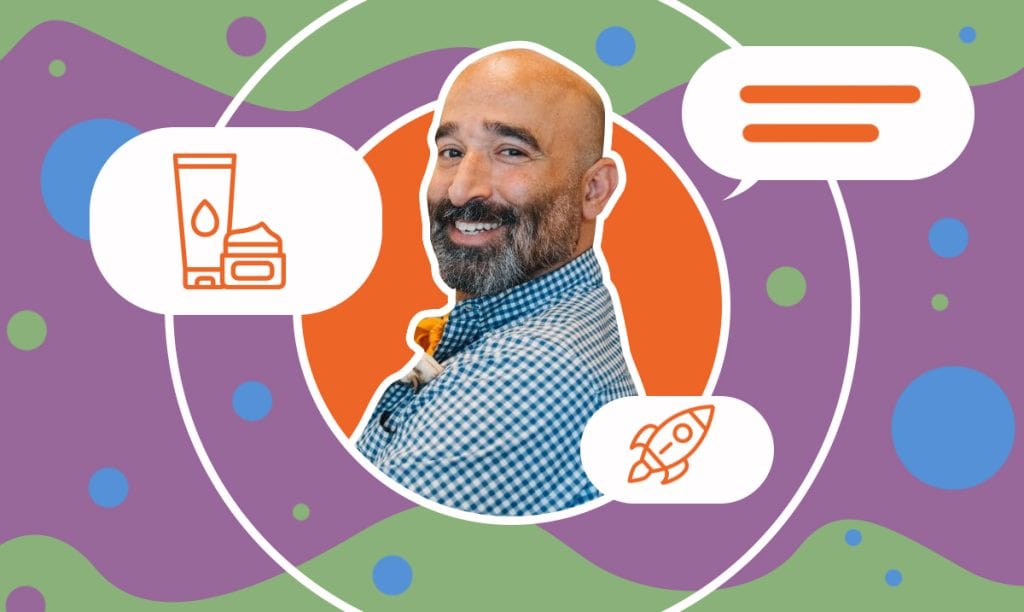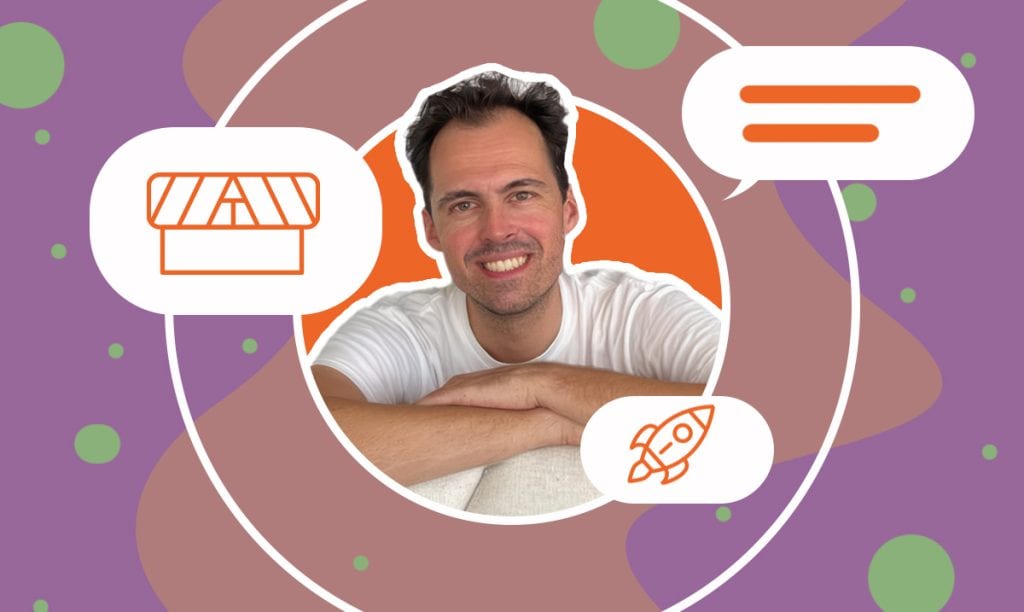Jonathan Plotzker-Kelly, founder of Heliotrope San Francisco, has spent over a decade crafting high-quality, all-natural skincare products rooted in ...
How Journey Hospice Balances High-Quality Care with Personal Touch
Written by: Esther Strauss
Esther is a business strategist with over 20 years of experience as an entrepreneur, executive, educator, and management advisor.
Published on January 31, 2024

Today, we are delighted to welcome Sara Egan, a distinguished figure in the healthcare field. Sara, the administrator and director of nursing at Journey Hospice Care, brings a wealth of knowledge with her diverse qualifications in nursing, including being a registered nurse, a Bachelor of Science in nursing, and certifications in oncology, hospice, and palliative care nursing, and as a certified dementia practitioner.
Her extensive experience and compassionate approach have been instrumental in shaping the exceptional care Journey Hospice Care offers to its patients. Join us as we delve into her insights and experiences in the healthcare industry.
Introduction and Inspirations in Hospice Care
SBS – What inspired you to start your journey in hospice care?
Sara – I have been a nurse for about eight years. In the past, I was an oncology nurse, and I chose that because I loved having a longer timeline with patients. I don’t love the in and out. I love getting to know them, having more time with them, and seeing how they are doing.
When I transitioned over to hospice, it turned out to be even more of what I love because I can then get to know people in their homes, get to know their families, get to know how things are going, and just spend lots of extra time loving them, educating them, and spending time with them.
From there, once I fell in love with hospice, I helped a smaller company grow and learn a lot. Then, I realized it was something I wanted to do myself. I wanted to make all of the decisions from a nursing standpoint about what we could do for the patients, how we could care for them, and what we could provide. I just wanted to have a level of care directed by how I wanted to be involved. It was driven by my nursing heart and wanting to provide as much as possible to patients. I surrounded myself with a team that felt the same way and that it wasn’t just a job; it was something that everybody loved being a part of.
Well, there has to be money in a business. But I go out there and spend my days finding resources to help patients. I look for businesses that may not come from a financial standpoint — such as nonprofit organizations, donations, or sponsorships. I look for things I can provide more for patients that they don’t have to pay for or maybe even the company doesn’t have to pay for. There are ways to get extra resources. Another reason I wanted to be in charge of the business was so I could find all those things and be that go-to whenever someone needed something. I couldn’t just say, “No.” I would say, “Let me find something.”
In speaking to the sadness of taking care of the patient, sometimes there is an aspect of that, but because I have seen hospice, I go into it with that knowledge, so there’s no surprise there. But I get to know them and their families in such a way that while it’s sad when they pass, I have been better off and learned so much from them and being part of their family, and it just seems like they’re on their next step.

Quality and Consistency in Home-Based Care
SBS – How do you ensure the quality and consistency of care provided in the patient’s homes?
Sara – There is Medicare, and the government and healthcare have set standard guidelines, so there’s always going to be a baseline that we follow to make sure there’s consistency and continuity. But the differences between different companies are, I would say, mostly the team they surround themselves with.
I’m still small. I’ve allowed myself to grow in a small way to find team members, nurses, doctors, social workers, chaplains, and anybody else I need. I had seen their heart and their passion before we talked about employment. The difference is that I can ensure they see these people and patients as their family members more than just “clock in and do a job,” which is okay in healthcare. Sometimes, we just have to clock in and clock out because there are a lot of patients who need us.
But with me being small, I can have time to feel people out and know what their passion looks like and know that they’re on board with a small company that wants to be able to give as much and provide as much personal care as possible. So, the continuity is making sure my team is small. Everybody knows communication and what’s going on, but also the guidelines we follow in a healthcare setting to ensure everybody is well cared for.
Training and Supervision Procedures for Caregivers
SBS – What’s the process of training and supervising your caregivers? Do you have some procedures in place?
Sara – Of course. I would say the biggest thing I promote is communication. These patients are changing constantly, and I don’t want people to call and wonder if someone they’re talking to knows what’s going on or have to re-explain themselves every five minutes. I make sure our communication between all the team members is really on top of things and everybody’s caught up. We have a charting system where we can chart the medications, the visit, and how things are going to make sure that everybody is on the same page.
As far as training, I spend a lot of time with them at the beginning. I introduce them to the patients, and they see how I talk to them, what we provide, and what the difference is.
Another reason for starting the company and doing it myself is that there’s not a role that I haven’t done or taken on myself. Many administrators and people who start these companies have a great heart but do not always have the ability to care for the patients medically. So, because I’m a nurse and started it, I’ve done as many of the jobs and put myself in as many shoes as possible. That way, at any given moment, either A) I can step in if there’s a need or B) I live in that training process with them and know that it’s always something that we’re learning. You’ll never feel like you know everything, but that’s what I’m there for, and we can all bounce things off each other. We can ask questions daily to learn from each other and the patients. It helps me give them grace when I know it’s a hard job, but it also helps me understand how to best fix things when they don’t quite understand things or something isn’t going right.
Overcoming Challenges in Starting the Business
SBS – What challenges did you face when you started this business, and how have you overcome them?
Sara – There have been a couple of things. The first thing that comes to mind is your self-doubt. Because I don’t have a big team and we’re all out doing things (we don’t sit in an office), there are a lot of days when I feel like an island. There’s much time for doubt to creep in, and you’re wondering and comparing yourself to other businesses and providers. You think of what they’re doing and how they’re doing it and wonder if what you’re doing is matching up.
For the past six months, I have started surrounding myself with many things that help. Many groups and people I’ve met are encouraging regarding business and health care, and they’re just being supportive and not competitive. I also listen to many audiobooks and podcasts about business and health and all sorts of things to help with that doubt, to just really feel like I’m following my heart and the rest will fall into place.
Getting through those daily thoughts about competition and whether you’re doing the right thing sets in constantly, and from the beginning, that’s the hardest part until you see any traction. That’s a lot of it.
The other part is just making sure that you know that you have the hours and the dedication to spend every waking moment out there. It’s tiring, and you often wonder if this is right. Then, once you start to see things, it helps. You may never feel that the hours you have to spend caring for a patient are enough, but you should always know that you’re doing everything you can.
Adapting Services to Diverse Patient Needs
SBS – How do you adapt your services to different patients’ needs?
Sara – I must constantly remind myself that I cannot do as much as I want to do alone. Delegating is a double-edged thing. It’s very hard for me, but it’s also very important, and I’ve learned the art of knowing that I can’t do it all alone. That’s where that teamwork steps in, and I’m delegating the things I know other people can handle because I have instilled that confidence and faith in knowing they’re doing the right thing.
With the challenging nature of the patients, again, that’s where the communication comes in. I open myself to my team so that they can constantly call for questions and ever-changing things. I make my schedule in my life amenable to where I could drop anything at any moment to see someone, answer a call, help where it’s needed, and always be available for those ever-changing conversations, patient visits, and new people who need to sign up.
It’s a lot of hours spent on learning. I’m in the car listening to books and podcasts. I’m signed up for a conference next month. The more I and the people around me can learn, the better equipped we are to answer all those questions and those ever-changing needs that are happening with each and every patient.
We may all think we know everything about what we’re doing when we start something because that’s why we’re starting it. But you should constantly learn, grow, and share that knowledge with your team. Also, be vulnerable, show that you make mistakes, learn, and figure things out.
Evolution of the Company
SBS – How much has the company evolved since its inception?
Sara – It’s hard for me to be in the thick of it and outside looking in at the same time. I have been working on this knowledge-wise for about a year, but the doors have been open for about six months. Those six months feel like no time and all the time in the world. It’s very mixed.
I look back, and it’s amazing how many people I’ve met, how many things I’m a part of, and how many people have trusted me with their patients in the past six months. In that aspect, I’ve grown from nothing to so many wonderful things, great patients, and a team.
In the other aspect, I feel like I have so much room to grow, and I don’t want to hurry it and for it to go fast. I still have so many things I want to do and so much growth that I want to be a part of. I want to have more people and more team members and make this thing empowering to many. It’s grown and been amazing, but it still has so much more room to grow.
As far as the growth, I don’t have a set goal. This year, I’m trying to be intentional about tactical goals, numbers, and things I need to accomplish. But also, it’s already been so fulfilling and filled my heart so much that if it continues slow, fast, whatever it is, I’m happy already. Whatever happens is great.
Advice for Aspiring Entrepreneurs in Hospice Care
SBS – What advice would you give someone who wants to start a similar business?
Sara – It sounds kind of cliche, but believe in yourself. We are all here caring for these people because we have the heart to care. I would say go out, meet as many people as possible, and surround yourself with wonderful, encouraging relationships and knowledgeable people who help you learn and grow. You can do whatever your passion is. Taking care of people will be the best thing you’ve ever done. With my business, yes, there’s overhead, yes, there’s business knowledge. There’s all this logistical stuff you already know, but if you don’t have someone telling you, “Just do it,” then you never will. It’s all part of the journey. That’s also why I named my business that way. Every journey and person’s situation is different; all are just here for the journey.
Comments
Leave a Reply
Subscribe to Our Newsletter
and gain insider access to cutting-edge business insights and trends.
Featured Resources

How a Retail Pro Turned Skin Sensitivity Into a Skincare Brand
Published on April 3, 2025
Read Now

How AirTulip Improves Sleep Quality and Eases Allergies with Clean Air
Published on February 27, 2025
Imagine waking up feeling truly refreshed, breathing air that is 1,000 times cleaner than what traditional purifiers can offer. That’s the promise ...
Read Now

How Lin Mezori Is Transforming the Recovery Industry
Published on January 2, 2025
Lin Mezori, the matriarch behind Pure Recovery, has transformed the wellness and recovery space with her vision of blending innovative therapies and ...
Read Now
Sara and her team walked into our lives when my precious husband was placed on hospice. What a blessing she and her team were! The care my husband received was outstanding. Sara was always available to answer questions, give encouragement and help in any way she could.
My family and I will be forever grateful for the Lord’s blessing through Journey Hospice and especially Sara. She not only walked into our lives, but also into our hearts.